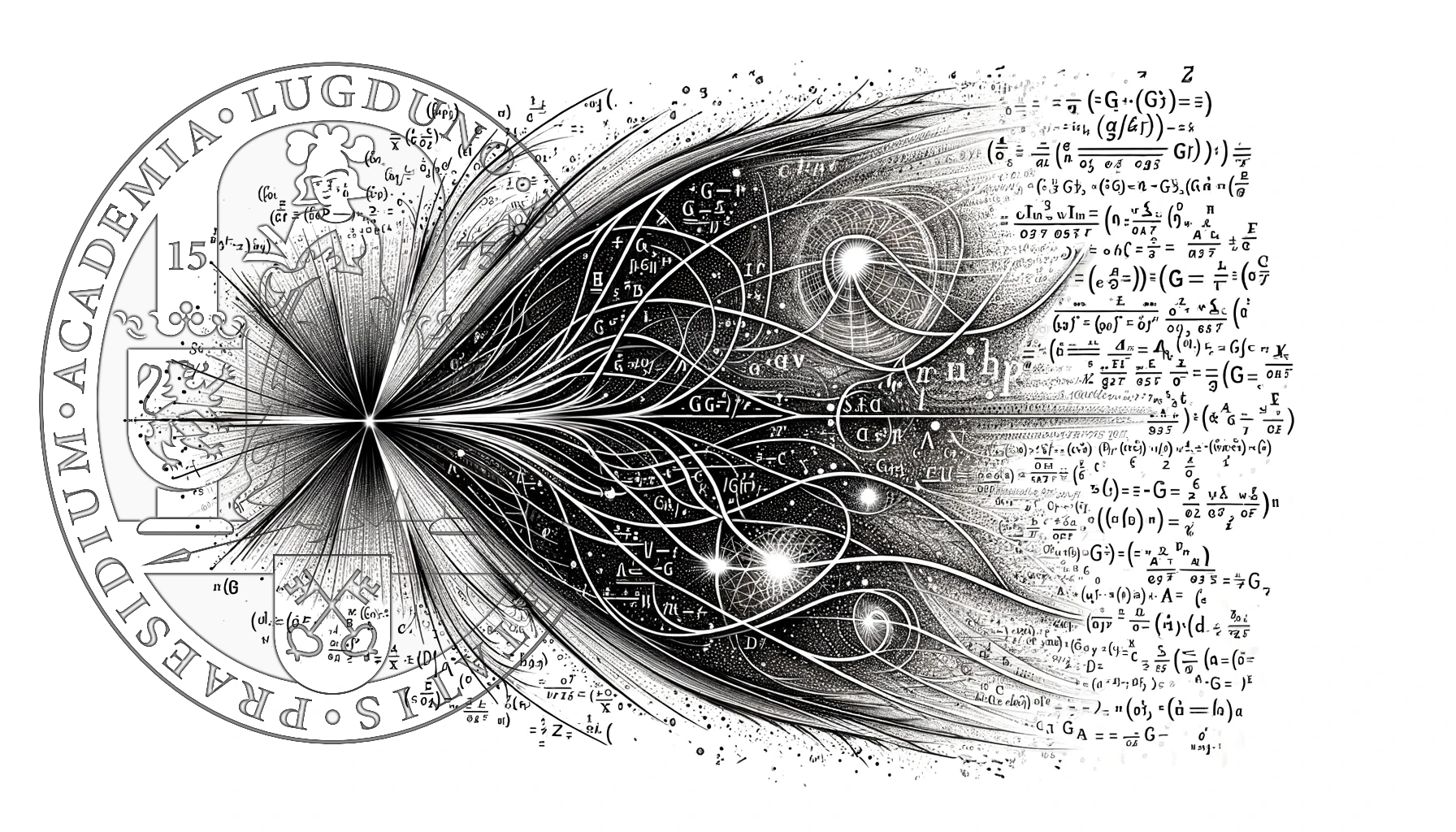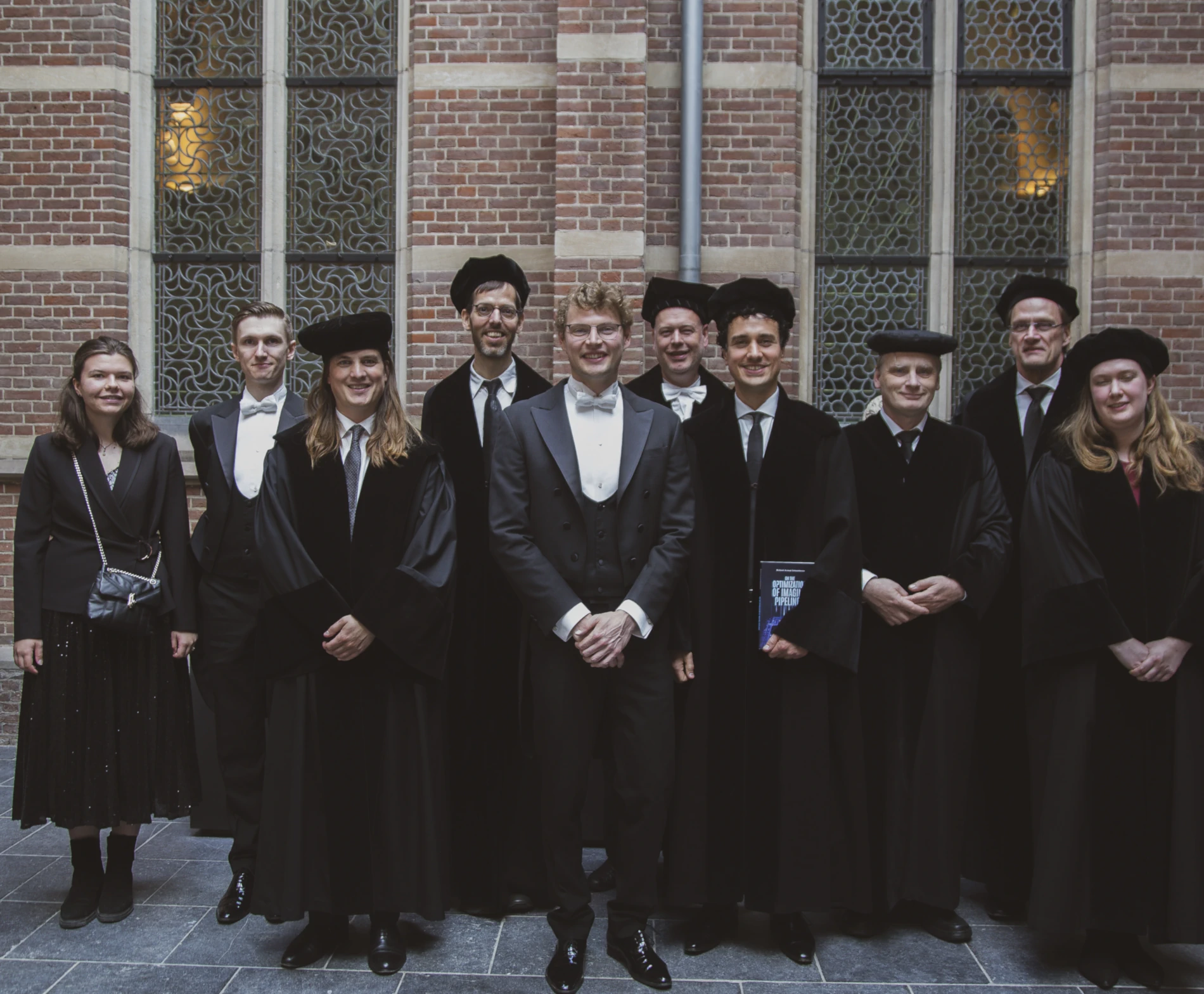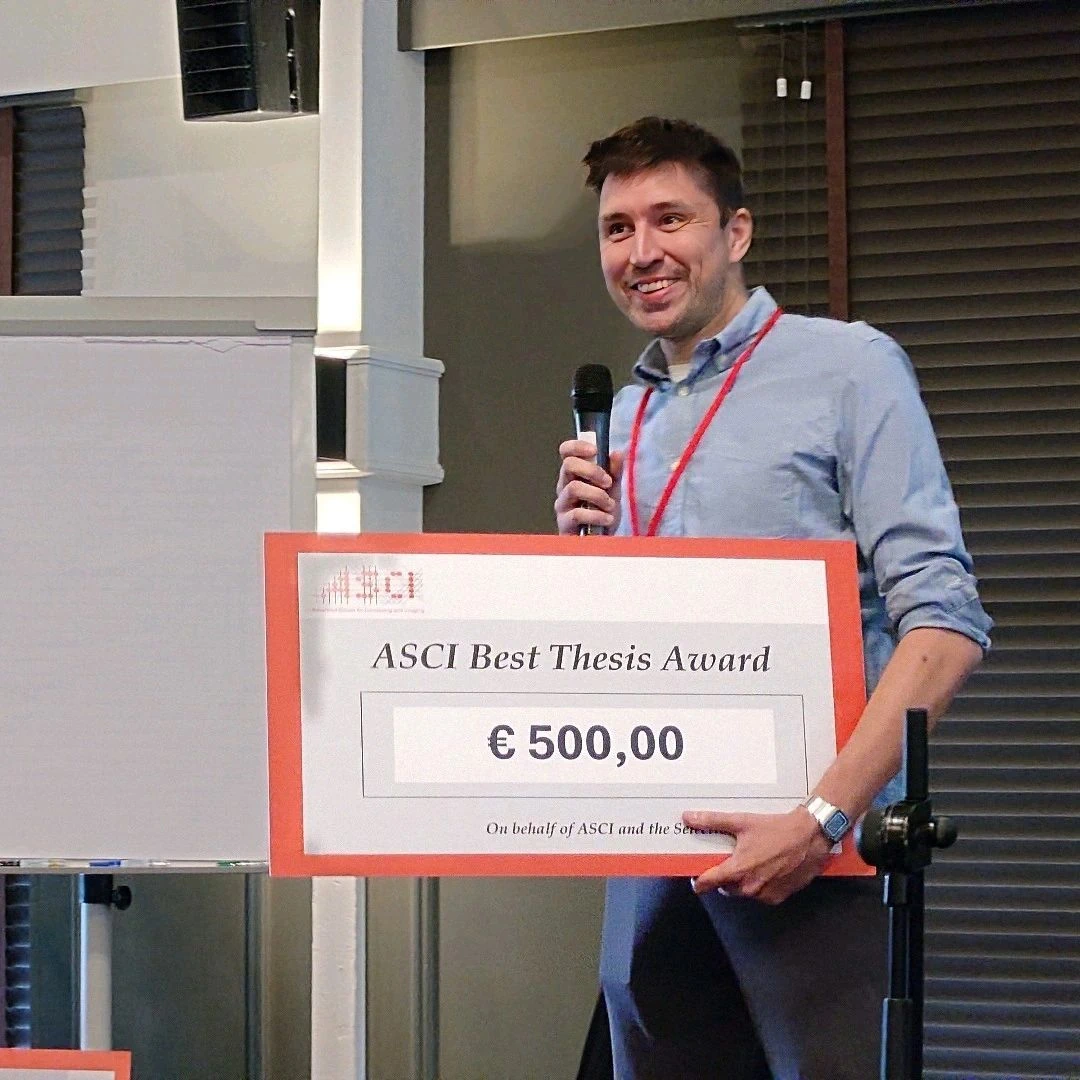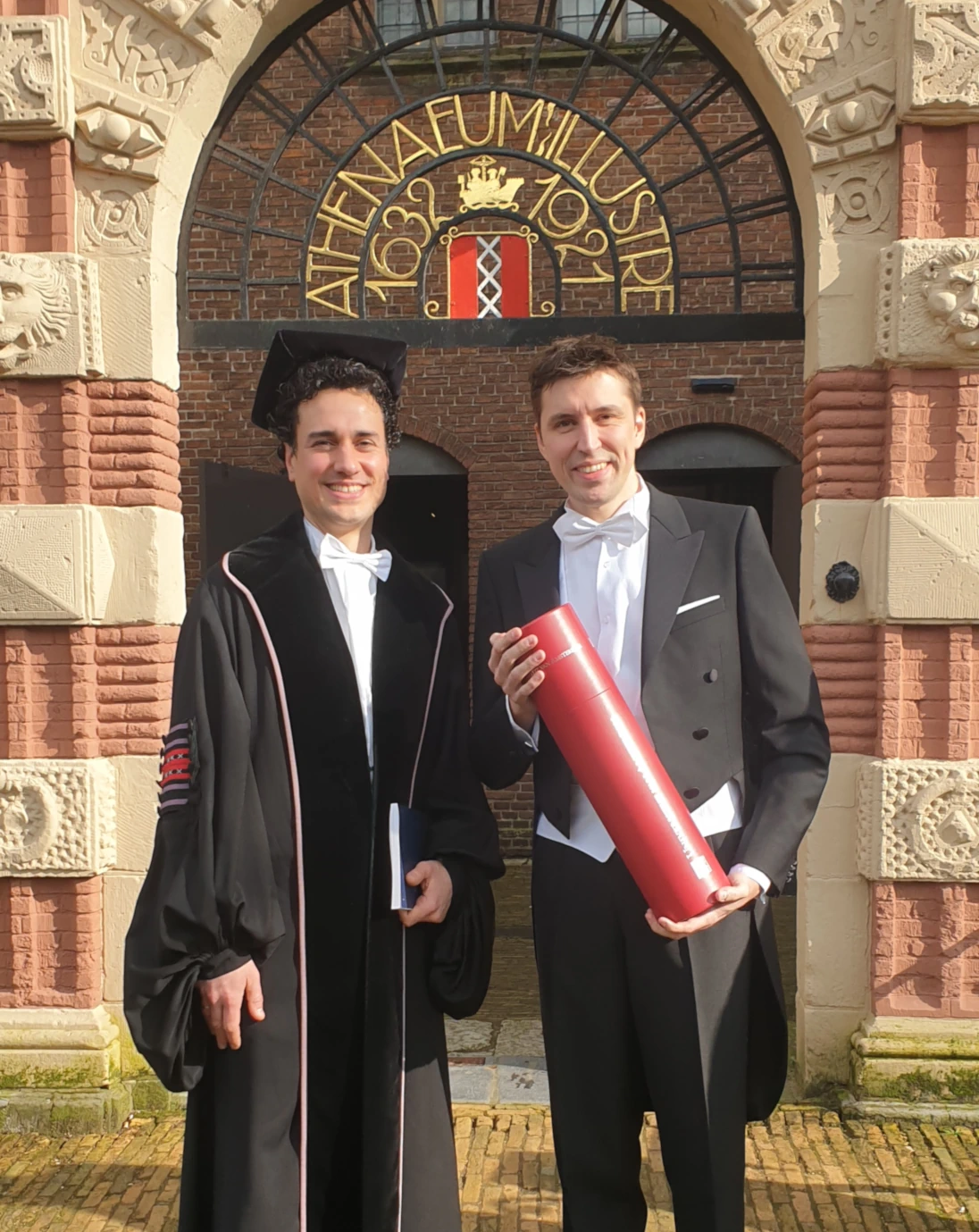June 11, 2024 — Richard Schoonhoven has successfully defended his PhD thesis titled “On the Optimization of Imaging Pipelines” at the Academy Building of Leiden University. Richard did his PhD while working at the Centrum Wiskunde & Informatica (CWI) with Prof. Joost Batenburg (Leiden University) as his promotor and Daan Pelt and Ben van Werkhoven as co-promotors.
Richard’s thesis covers various applications, from Computational Tomography (CT) to Radio Astronomy, and considers their optimization in broadest sense. Some of the algorithms or pipelines are optimized in terms of quality of the reconstruction, others are optimized towards execution time, or even energy efficiency. Together with Ben, Richard has published several papers on auto-tuning for GPU applications. In one study, Richard compared the effectiveness of a wide variety of optimization algorithms for auto-tuning GPU applications and also developed a new way to quantify how difficult it can be for an optimization algorithm to tune a particular GPU applications. In another study, together with Bram Veenboer and Ben van Werkhoven, Richard optimized a number of Radio Astronomy applications for various GPUs in order to bring down their energy usage.
Richard’s PhD thesis is available from the Leiden University library. Included below is the abstract of this thesis.
In this thesis, topics relating to the optimization of high-throughput pipelines used for imaging are discussed. In particular, different levels of implementation, i.e., conceptual, software, and hardware, are discussed and the thesis outlines how advances on each level need to be made to make gains in computationally demanding imaging applications. Chapter 2 concerns the implementation of real-time segmentation of X-ray computed tomography (CT). Chapter 3 concerns the end-to-end optimization of various CT workflows by using auto-differentiation frameworks. Chapter 4 concerns a novel pruning method for neural network to significantly increase the speed of convolutional neural networks (CNNs). Chapter 5 comprises a benchmark study of optimization algorithms for tuning GPU kernels, and introduces a novel graph-based approach to quantify search space difficulty. Chapter 6 introduces a novel model to improve the energy efficiency of GPUs.





